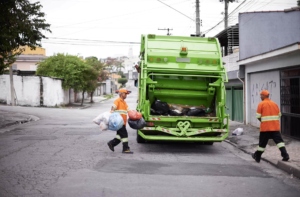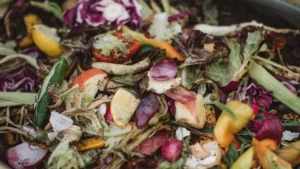How to Minimize Food Waste at Your Summer Events: A Guide for the Hospitality Industry
Business leaders in the hospitality industry appreciate the importance of running efficient, cost-effective operations. Amidst the intensity of event planning, one aspect that often gets overlooked is food waste. Still, it plays a crucial role in your business’s profitability and in your company’s environmental responsibility.
In recent years, the staggering scale of food waste in the hospitality sector has come under increasing scrutiny. Every year, millions of tons of food are wasted, contributing to approximately 8% of global greenhouse gas emissions, according to the United Nations’ Food and Agriculture Organization (FAO). As the stewards of large-scale summer events – from corporate gatherings to weddings – hospitality organizations are uniquely positioned to help address this issue.
Beyond the environmental implications, there’s a compelling business case for reducing food waste. A recent study showed that for every dollar invested in food waste reduction, hotels saved anywhere from $7 to $10. The logic is simple: when businesses waste less, they spend less. By implementing strategic, thoughtful practices, you can significantly impact your bottom line while paving the way for a more sustainable industry.
This guide will provide you with actionable steps to minimize food waste at your summer events through efforts like organics recycling, and contribute to a greener planet while boosting your profitability. Let’s get started.
Understanding Food Waste
Food waste in the hospitality industry represents any food that’s prepared and isn’t consumed, whether it’s from overproduction, spoilage, or uneaten food left on guests’ plates. This can be tied to several stages of food handling, from procurement and storage, through preparation and cooking, to serving and disposal.
Where and Why Food Waste Occurs at Summer Events
Summer events, with their large crowds and abundant catering, can be prime sites for food waste. Let’s break down the common areas where food waste typically occurs:
- Overproduction: Caterers often prepare more food than necessary to make sure guests never see an empty food tray. This overproduction leads to a significant amount of waste if the food isn’t consumed or appropriately stored for future use.
- Buffet-style Service: Buffets, a common sight at summer events, often cause higher levels of waste. Guests may take more food than they can eat, plus health regulations often prohibit the reuse of food once it has been served.
- Inadequate Storage and Handling: Poor inventory management and inadequate storage conditions can lead to spoiled food, especially for perishable items during the hot summer months.
- Last-minute Changes: Changes to guest count, event timing, or menu requests can also contribute to food waste.
The Bottom Line: Financial Impact of Food Waste
The financial implications of food waste in the hospitality industry are significant. According to a report by the Waste & Resources Action Programme (WRAP), on average, the cost of food waste to a hotel is $0.97 per meal in the UK and $1.97 per meal in the US. When you apply those numbers to hundreds of meals at a single event, and countless events over a season, the financial strain becomes crystal clear. This shows us that reducing food waste isn’t just environmentally responsible – it’s a smart financial move.
How to Mitigate Food Waste: 4 tips
Thankfully, you can actively address food waste with thoughtful practices and strategies. Here are four concrete tips to help minimize food waste at your hotel events:
1. Accurate Forecasting and Ordering
Effective forecasting is the first crucial step in minimizing food waste. You can base your predictions on previous events you’ve hosted that were a similar size, event type, and guest demographics. Use this historical data to accurately estimate the amount of food you’ll need. Plus, consider the type of event and the expected weather, as these factors significantly influence food consumption. For example, if thunderstorms are anticipated, you might consider preparing less food overall since inclement weather usually leads to lower guest counts.
For ordering, it’s best to work closely with your suppliers and establish rapport with each vendor, so you can adjust your orders closer to the event date. This helps to account for last-minute changes in attendance and avoid over-ordering.
2. Inventory Management and Efficient Storage Practices
Proper inventory management and storage are key to reducing food waste. Maintain a well-organized inventory system that tracks the quantity and expiration dates of food items. This allows you to prioritize the use of ingredients that are close to expiring.
If you find that you’re regularly dealing with spoiled food in your inventory, consider performing a food waste assessment to help your team determine which food items are being overordered and going bad so you can adjust your food procurement plan accordingly and help mitigate future spoilage.
Also, make sure that your storage facilities are functioning properly. This is especially important during summer events when high temperatures can lead to food spoiling more quickly. Regularly check the temperature and cleanliness of your refrigerators and storage areas.
3. Organics Recycling of Leftover Food
Organics recycling is an environmentally-friendly process that transforms organic waste, including food scraps, into valuable resources. It typically involves one of two methods: composting or anaerobic digestion. In composting, organic waste is decomposed under controlled aerobic (oxygen-rich) conditions. Over several weeks to a few months, microorganisms naturally break down organic material into a nutrient-rich fertilizer, which can be used to improve soil health and fertility.
Anaerobic digestion, on the other hand, breaks down organic waste in an oxygen-free environment, producing biogas (a source of renewable energy) and digestate, a nutrient-rich substance that can also be used as fertilizer (like compost). When applied to food waste, organics recycling offers many benefits, helping divert substantial waste from landfills, reducing landfill costs, minimizing greenhouse gas emissions, and contributing to a circular economy where waste is repurposed and reused instead of discarded.
In addition, sustainable recycling initiatives can help manage non-food waste that often accompanies events, like glass, plastic, and paper. CheckSammy offers custom recycling programs that can help ensure all reusable items at your events are recycled appropriately, from food waste to other recyclable materials.
4. Food Donation and the Role of Food Banks
Donating surplus food can be another effective strategy for minimizing waste while contributing to your community. Many cities have food banks or organizations that accept food donations and distribute them to those in need. Ensure you understand local health regulations and the guidelines of your chosen organization before donating. The easiest type of food to donate is prepackaged items such as single-serving snacks or bottled beverages. Check with your local food charities for more details around donation requirements.
Partner with a Professional Organics Recycling Company
By integrating these practices into your operations, you can significantly reduce food waste, benefit your bottom line, and take a strong step towards a more sustainable industry. But you don’t have to go it alone. Introducing sustainability initiatives like organics recycling into your hospitality organization is easier with an experienced partner like CheckSammy. With specialized organics recycling services and experience working in the hospitality industry, we have the skills and resources to support all of your sustainability needs. Contact us today to learn more.
See Our Services
Create a custom solution to meet your waste and sustainability goals. Contact us today!
Continue reading
Dive deeper into the CheckSammy Blog by reading one of our posts below
Feeling the Pain of Higher Resident Turnover? Apartment Junk Removal Can Help
If you’re a property manager, you’ve probably had a significant increase in tenant turnover over the last couple of years. So it’s no wonder apartment junk removal may be top of mind for you right now. There are several reasons for this shift. For one, the housing market is on fire right now. In 2020 […]
Read More About Feeling the Pain of Higher Resident Turnover? Apartment Junk Removal Can HelpSetting Up a Community E-waste Recycling Program
E-waste is the fastest-growing municipal waste stream according to the EPA, yet e-waste recycling isn’t keeping pace. In fact, only 12.5% of all e-waste is recycled, reports the EPA. Starting a community e-waste recycling program is a terrific way to ensure hazardous e-waste, like lithium-ion batteries, doesn’t end up in your community’s landfill. Creating an […]
Read More About Setting Up a Community E-waste Recycling ProgramWaste Management’s Role in the Circular Economy
Establishing a waste management program for your business or community is one of the best ways you can contribute to the circular economy. Here’s everything you need to know about waste management’s role in the circular economy (and how to get involved). What Is the Circular Economy? Our current economic model is all about taking […]
Read More About Waste Management’s Role in the Circular Economy5 Reasons to Consider a Textile Recycling Program for Your Organization
Americans sent more than 17 million tons of textiles to landfills in 2018, a volume that is only increasing every year, reports the Environmental Protection Agency. When you think about the fact that it can take over 200 years for textiles to decompose, it’s easy to grasp how large textile waste’s contribution is to the […]
Read More About 5 Reasons to Consider a Textile Recycling Program for Your Organization8 Benefits of Environmentally Friendly Power Washing Services
If you’re into maintaining the curb appeal of your business or home, then you’ve probably heard of pressure washing. Pressure cleaning involves using high-pressure water spray to remove grime, mold, dust, paint, mud, and other junk from objects or surfaces. Many people worry that pressure washing isn’t good for the environment, but this couldn’t be […]
Read More About 8 Benefits of Environmentally Friendly Power Washing ServicesWhy Our Customers Love Our Full-Service Junk Removal
If you’re looking for full-service junk removal services, you’ve come to the right place. CheckSammy is a one-stop shop for all your junk removal and sustainability needs. From our affordability, simplicity, and unrivaled turnaround times to our innovative sustainability solutions and patented technology and data, it’s clear why some of North America’s biggest companies choose […]
Read More About Why Our Customers Love Our Full-Service Junk RemovalTips for a Stress-Free Move From An Eco-Friendly Junk Removal Company
What does an eco-friendly junk removal company know about moving? Quite a lot, actually. Moving can be an especially chaotic time. You have to pack everything up, get rid of unwanted items, clean your property, load everything up, and move your things to your new location. That doesn’t even include the unpacking and resettling period. […]
Read More About Tips for a Stress-Free Move From An Eco-Friendly Junk Removal CompanyCollege Junk Removal Tips for Student Move-In Day
As the new school year gears up, colleges across the country are looking for ways to clean up their campuses before the new year begins, and many of them want to do so sustainably. College junk removal isn’t easy, though, especially around move-in week—and when trying to do so sustainably. As students move in and […]
Read More About College Junk Removal Tips for Student Move-In Day8 Items Hospitality Businesses May Not Know They Can Recycle
One hotel guest produces 2.5 pounds of trash every single day. Just a single hotel room produces around one cubic yard of waste each month, which totals 200 gallons of waste per room every month. Most of this waste goes straight to the landfill, even though research shows that up to 60% of it is […]
Read More About 8 Items Hospitality Businesses May Not Know They Can Recycle












